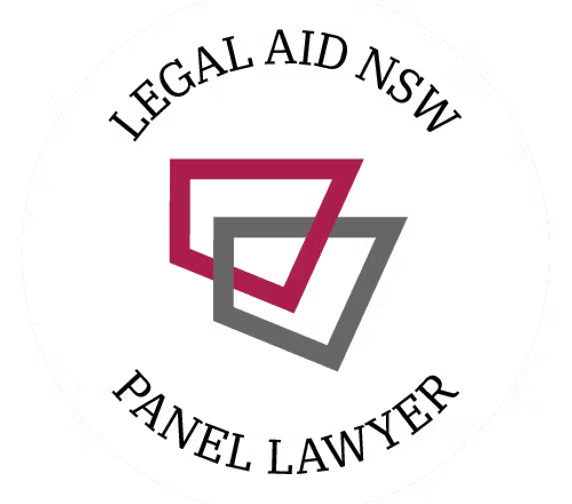
Personal Safety Intervention Order Specialists
Personal Safety Intervention Orders (PSIOs) are crucial legal tools designed to protect individuals from stalking, harassment, and other threatening behaviours. Our team of dedicated lawyers in Melbourne provides expert guidance and robust representation for those seeking protection or responding to PSIOs, ensuring your rights and safety are paramount throughout the legal process.
Navigating Personal Safety Intervention Orders in Victoria: A Comprehensive Guide
Personal safety is a fundamental right for all individuals. If you are experiencing threats, harassment, or stalking from someone outside your family, understanding Personal Safety Intervention Orders (PSIOs) in Victoria is essential. This comprehensive guide is designed to assist individuals seeking protection, legal professionals, and those involved in PSIO disputes in Melbourne and throughout Victoria.
Definition and Purpose
Personal Safety Intervention Orders (PSIOs) are court-issued directives intended to protect individuals from stalking, harassment, or other threatening behaviors by non-family members. The primary aims of PSIOs are to:
- Ensure the safety and peace of mind of those at risk
- Prevent further incidents of harassment or threatening behavior
- Establish clear legal boundaries for the respondent’s conduct
PSIOs are governed by the Personal Safety Intervention Orders Act 2010 (Vic), which provides the legal framework for their application and enforcement.
Who Can Apply
Applications for PSIOs can be made by:
- The affected individual (the “protected person”)
- Police on behalf of the affected individual
- Any other person with the leave of the court (in special circumstances)
Protected Persons: PSIOs can protect anyone experiencing harassment or stalking by someone outside their family, including:
- Friends
- Neighbors
- Colleagues
- Classmates
- Strangers
It’s important to note that for family members or intimate partners, Family Violence Intervention Orders (FVIOs) are the appropriate legal mechanism.
Grounds for Application
PSIOs can be sought in cases involving:
- Assault or threats of assault
- Property damage or interference
- Serious harassment
- Stalking (as defined in section 21A of the Crimes Act 1958)
- Serious threatening behaviour
The court must be satisfied that:
- The respondent has engaged in prohibited behaviour against the protected person; and
- The respondent is likely to continue to engage in the prohibited behaviour or conduct
Types of Orders
Interim Orders
- Provide immediate short-term protection until a final decision is reached
- Address urgent safety concerns
- Can be made without the respondent present (ex parte) in cases of immediate danger
- Typically last until the next court date
Final Orders
- Offer longer-term protection
- Usually last up to 12 months but can be extended if necessary to maintain safety
- Require a full court hearing where both parties can present evidence
Prohibited Behaviours
PSIOs can restrict various actions, including:
- Physical assault or threats of assault
- Stalking behaviors (e.g., following, surveilling, repeatedly contacting)
- Property damage or threats to damage property
- Serious harassment (e.g., persistent unwanted contact, intimidation)
- Offensive or threatening behavior
- Any conduct that causes the protected person to fear for their safety
Common Conditions
Orders may prohibit the respondent from:
- Approaching the protected person (often within a specified distance)
- Contacting the protected person through any means (phone, email, social media, etc.)
- Coming near specified locations such as home, workplace, or school
- Engaging in specific behaviors that cause fear or distress
- Publishing material about the protected person online or elsewhere
- Getting another person to engage in prohibited behavior on their behalf
The court can tailor conditions to suit the specific circumstances of each case.
The Legal Process
Navigating the legal process can be complex. Here’s a detailed overview of each step:
- Filing Applications:
- Initiate the process by filing an application at the Magistrates’ Court
- Provide a detailed statement outlining the prohibited behavior
- The court may make an interim order if immediate protection is needed
- Service of Documents:
- The respondent must be served with the application and any interim order
- This is usually done by police to ensure the respondent’s awareness of the proceedings
- Directions Hearing:
- The first court appearance where the magistrate decides how to proceed
- If the respondent contests the order, a date for a contested hearing is set
- Contested Hearing:
- Both parties present evidence and call witnesses
- The magistrate decides whether to grant a final order based on the evidence
- Final Order:
- If granted, specifies the conditions and duration of the PSIO
- Both parties receive a copy of the order
Evidence Requirements
Building a robust case requires substantial evidence. Consider gathering:
- Detailed personal statements
- Witness statements
- Photographs or video evidence of incidents or property damage
- Communication records (e.g., texts, emails, social media messages)
- Medical reports (if applicable)
- Police reports of any incidents
- Records of unwanted gifts or items sent by the respondent
Impact on Other Legal Matters
PSIOs can influence other legal proceedings, such as:
- Workplace disputes (especially if the respondent is a colleague)
- Neighborhood conflicts (if the respondent is a neighbor)
- Rental agreements (if changes to living arrangements are necessary)
- Child custody arrangements (if children are indirectly affected)
Understanding how these orders interact with other legal issues is crucial for comprehensive legal strategy.
Breaches and Enforcement
Breaching a PSIO is a criminal offence under section 100 of the Personal Safety Intervention Orders Act 2010.
- Maximum penalty: 2 years imprisonment or a fine of 240 penalty units, or both
- For subsequent offences: 5 years imprisonment or a fine of 600 penalty units, or both
To ensure enforcement:
- Report violations immediately to the police
- Keep a detailed record of any breaches
- Consider applying for a variation if the current conditions are insufficient
Variations and Revocations
Circumstances may evolve, necessitating changes to existing orders:
- Either party can apply for a variation or revocation
- The court will consider any changes in circumstances
- Safety remains the primary consideration in any decision to vary or revoke an order
Considerations for Children
Special considerations are necessary when children are involved:
If family law proceedings are ongoing, the court must take these into account
Children can be included on a PSIO as protected persons
The court must consider the best interests of any children affected by the order
Problem Consultation
Facing a legal challenge? Schedule a problem consultation with EAS Legal. Our experienced team is here to listen, understand your unique circumstances, and provide expert guidance to navigate the complexities of your case, offering solutions and support tailored to your specific legal needs.
Planning
Plan your legal strategy with confidence at EAS Legal. Our seasoned team is ready to guide you through the intricacies of your case, offering strategic planning and expert representation to ensure the best possible outcome for your legal matter.
Solving Problem
Let EAS Legal be your solution in times of legal challenges. Our experienced team is dedicated to solving your problems with strategic insight, expertise, and a commitment to achieving the best possible resolution for your unique case.
From Struggle to Justice
Voices of Our Clients
Discover what our clients have to say about their experiences with EAS Legal. Read testimonials highlighting our commitment, expertise, and success in providing unwavering legal support during challenging times.

Claim Your Free Legal Consultation
Discuss your case with a experienced lawyer
Frequently asked questions
Got more questions? We’re here to help. Contact us for personalized assistance.











